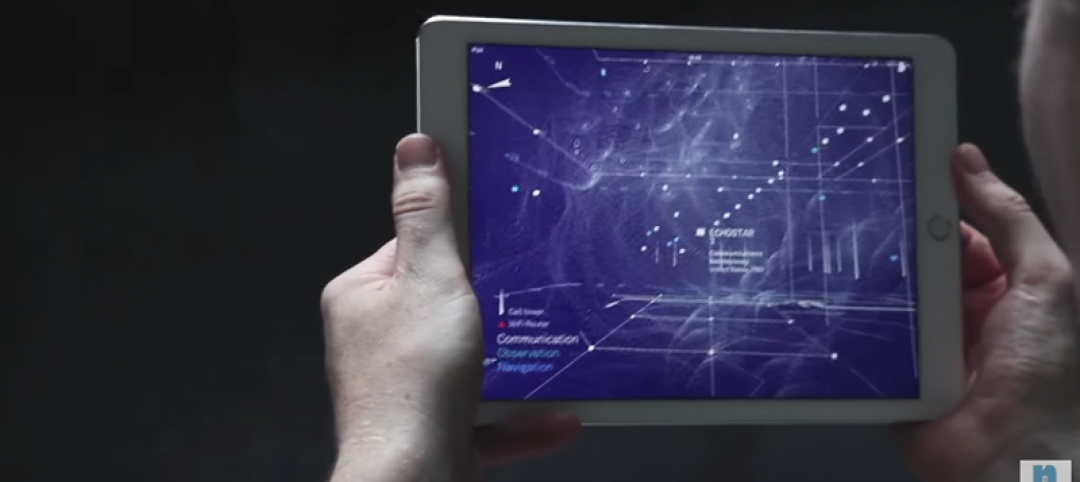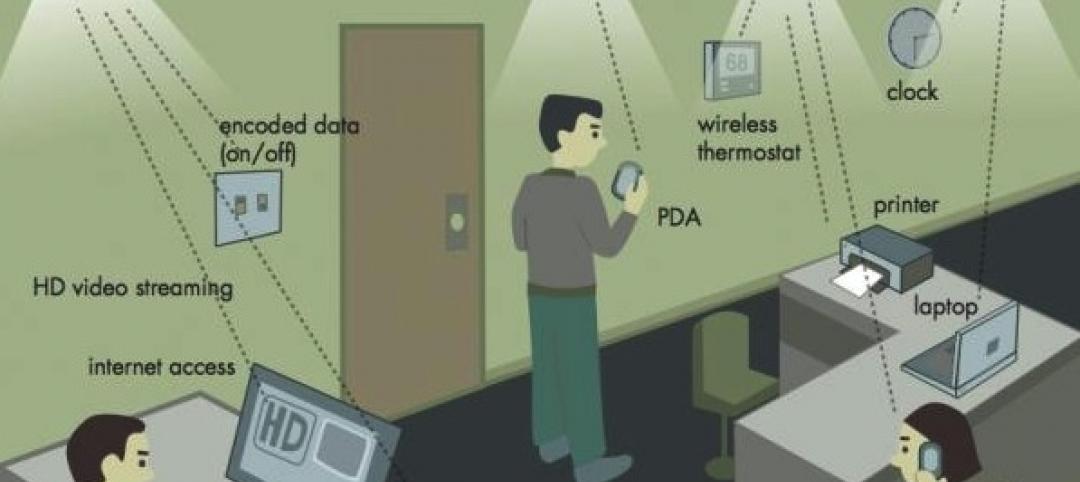In May, BD+C's blog partner, CASE, covered the rise of indoor positioning technology, and identified architectural applications for beacon technology.
BLE (Bluetooth low energy) beacons are small battery-powered devices that connect with tablets and phones that are in the immediate vicinity. This can enable businesses and other entities to send messages to users based on where they are in a certain space. Apple released the iBeacon in 2013, and the iOS8 update last summer made the innovation even stronger.
Mashable reports that Google will challenge Apple in this realm: The company unveiled Eddystone, a new BLE beacon format, along with tools that will let developers create apps along with the service. Google named the beacon after the Eddy Lighthouse in England, and the company has drawn the parallels between new beacon technology and classic guiding lighthouses.
Unlike iBeacon, which is only compatible with iDevices, Eddystone is cross-platform and discoverable by any Bluetooth smart device. It is open-source so any beacon manufacturer can make hardware compatible with it.
Though beacons usually broadcast information publicly, Eddystone has the option to communicate privately as well. The privacy feature, called Ephemeral Identifiers (EIDs), lets users track their luggage while traveling and find their keys, for instance.
For developers, Google released two new APIs. The Nearby API connects apps with other close devices and beacons; for example, users at an art museum can receive additional facts about a piece or display over their phones. The Proximity Beacon API allows developers to associate semantic location with beacons and store it in the cloud.
Eddystone is available on GitHub under the Apache v2.0 license. Google says Eddystone can be installed with a firmware update.
Related Stories
BIM and Information Technology | Dec 21, 2015
Laser scanning and in-shop prefabrication a boon for the WellStar Paulding Hospital
Contractor Brasfield & Gorrie’s use of BIM and prefabrication on the Hiram, Ga., hospital shows how digital tools can lead to savings, safety, and better construction.
Sponsored | BIM and Information Technology | Dec 17, 2015
How is the Value of VDC for Design Management Translating Outside the US?
Sascha Vesterlund, a VDC Specialist, Design Processer with MT Højgaard, and Nathan Wood, Innovation at DPR Construction, shared their perspectives on VDC
BIM and Information Technology | Dec 3, 2015
New app visualizes cellular and Wi-Fi signals in an area
Using data collected from millions of cell towers and Wi-Fi routers, the app makes the invisible visible.
BIM and Information Technology | Nov 30, 2015
Light-based wireless technology is 100 times faster than Wi-Fi
Li-Fi, which reaches speeds of 224 gigabits per second, is being tested in Estonia.
Sponsored | BIM and Information Technology | Nov 25, 2015
Contractor leverages dynamic site logistic plan as BIM deliverable
I recently sat down with two Architects-Turned-VDC-Process-Managers to discuss the ways in which they are leveraging technology to bring the value of BIM downstream
BIM and Information Technology | Nov 24, 2015
Solving the data conundrum with better tools to capture, share, and analyze information
At a recent Thornton Tomasetti symposium, experts showed how designs and projects can be improved by granular information that’s accessible to more users.
Modular Building | Nov 19, 2015
AECOM and Project Frog form partnership for building modular data centers
The Rapid Deployment Team will provide solutions for data centers both small (1 MW) and large (50+ MW).
BIM and Information Technology | Nov 18, 2015
AIA: Energy modeling key to reaching carbon neutrality in buildings
Energy modeling allows architects to be more ambitious with energy-saving in their design projects.
Green | Nov 17, 2015
DOE launches new data collaborative to help cities and states boost building efficiency
The SEED Standard will help manage, standardize, share performance data.
Sponsored | BIM and Information Technology | Nov 12, 2015
Is the PDF revolution advancing BIM workflows?
Many project teams who struggle to get everyone up to speed with BIM, find PDFs a useful tool to bridge the gap between the BIM world and the paper world














